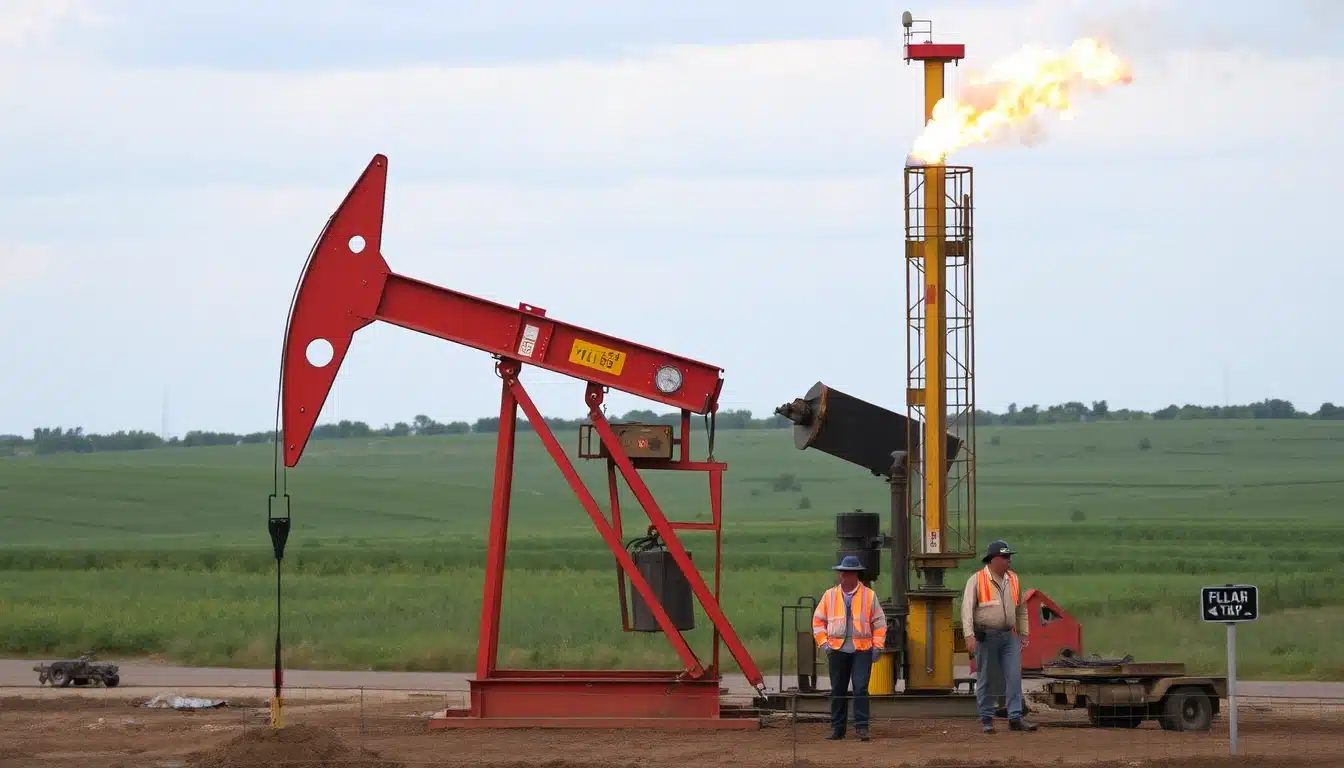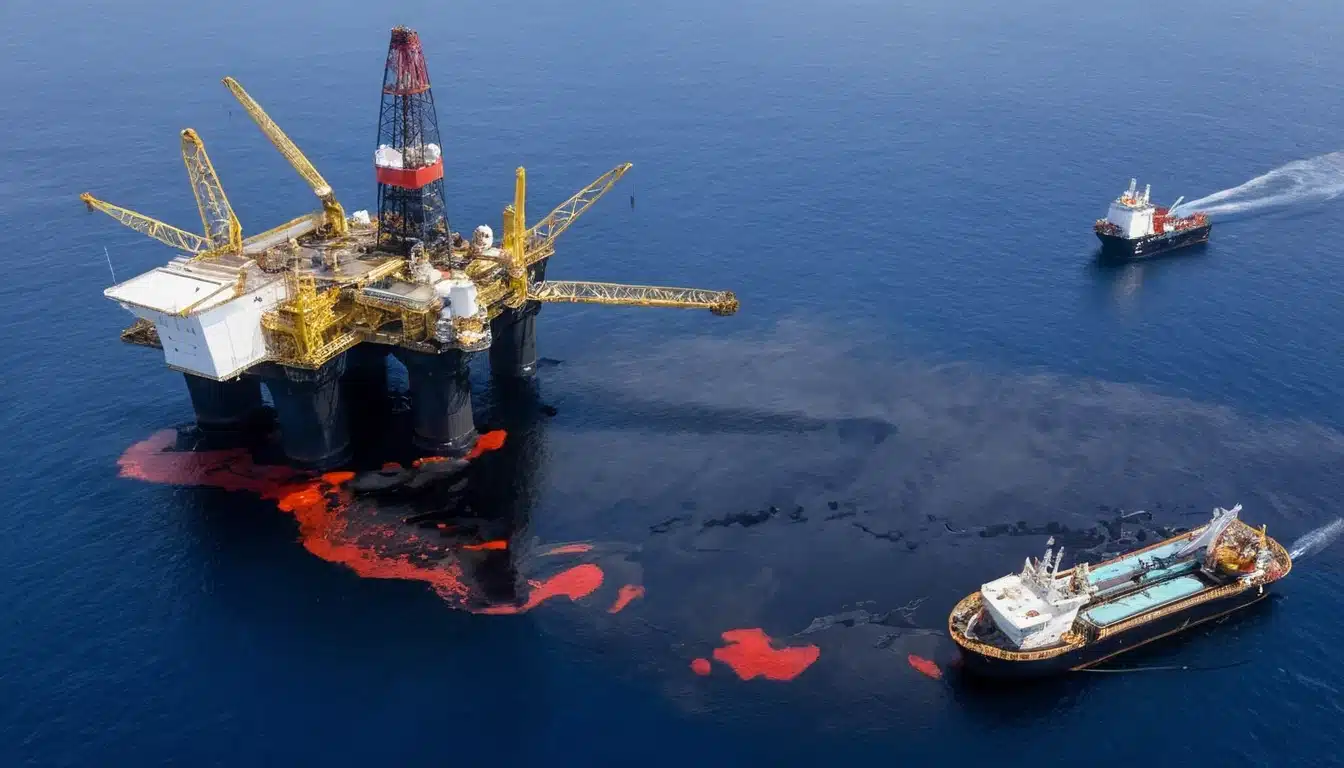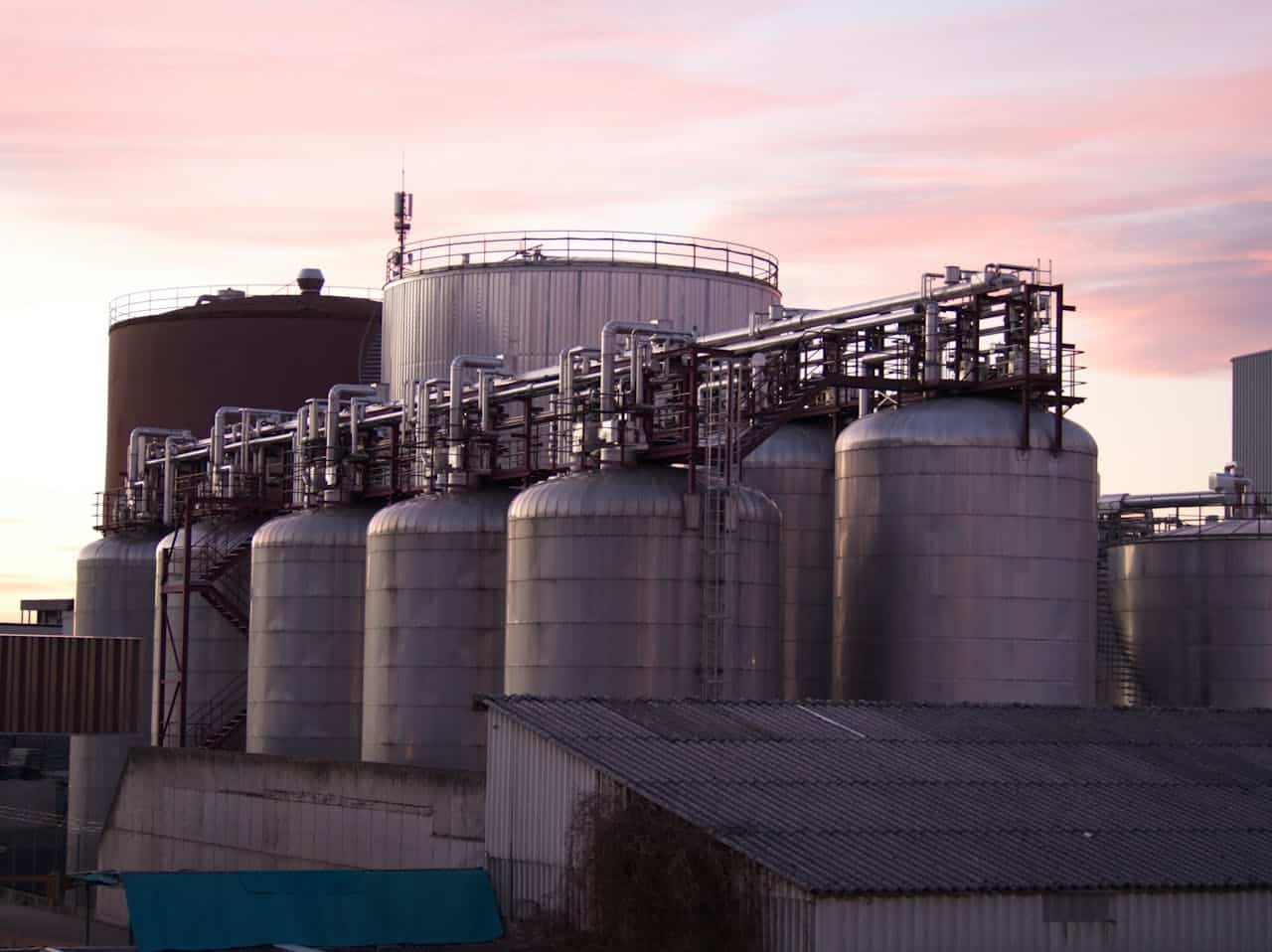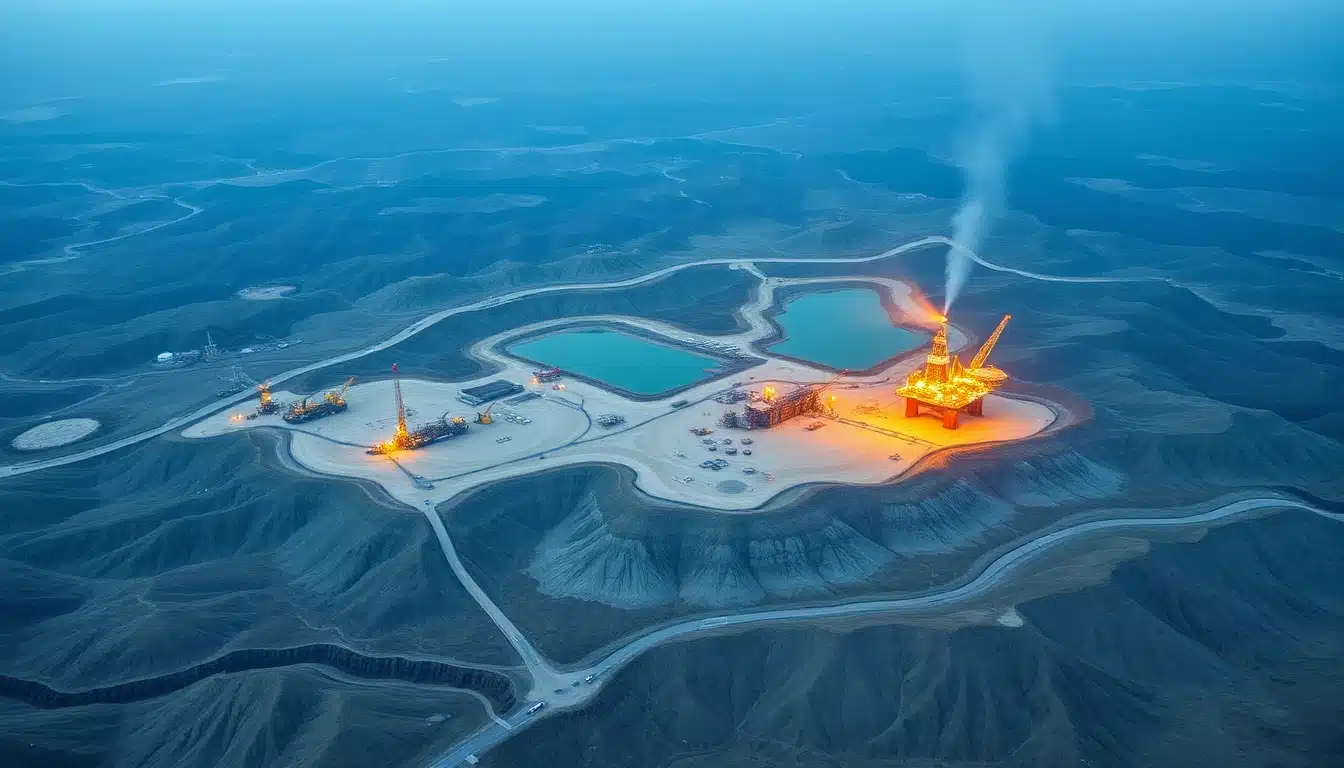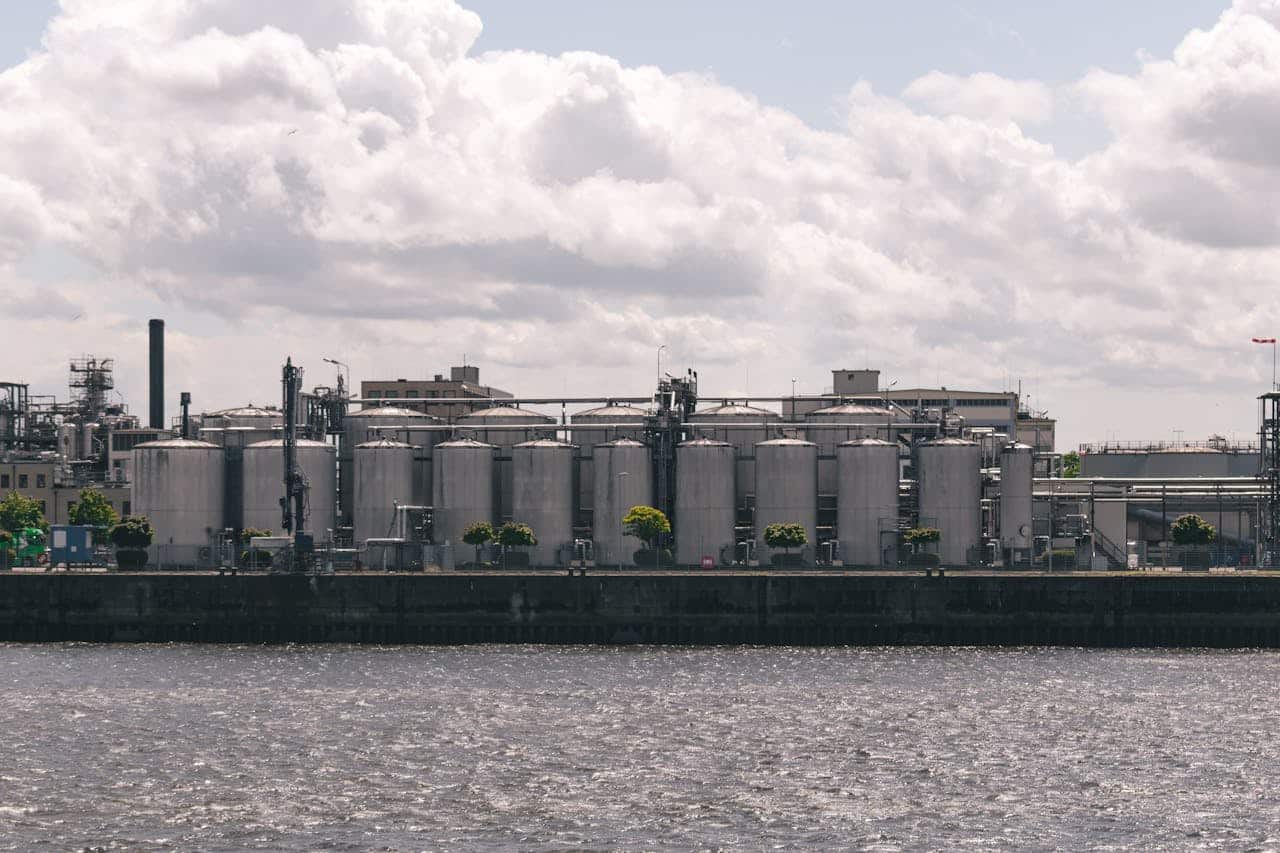Asset Integrity Management in Oil and Gas

| Date | Format | Duration | Fees (USD) | Register |
|---|---|---|---|---|
| 09 Nov - 13 Nov, 2025 | Live Online | 5 Days | $3785 | Register → |
| Date | Venue | Duration | Fees (USD) | Register |
|---|---|---|---|---|
| 17 Nov - 21 Nov, 2025 | London | 5 Days | $6305 | Register → |
| 14 Dec - 18 Dec, 2025 | Riyadh | 5 Days | $5775 | Register → |
Did you know that the global market for oil and gas data management is projected to grow from $19 billion in 2023 to over $60 billion by 2030, reflecting a compound annual growth rate (CAGR) of 18%? This surge underscores the critical importance of asset integrity management in the oil and gas industry.
Course Overview
The Asset Integrity Management in Oil and Gas course by Alpha Learning Centre is meticulously designed to provide a comprehensive understanding of advanced techniques used to ensure safety, reliability, and efficiency in operating infrastructure such as pipelines, drilling rigs, and refineries. This course focuses on risk assessments, inspection, and maintenance planning to prevent asset degradation and assure compliance with regulations related to safety and the environment.
The course covers a wide array of activities including corrosion management, regulatory compliance, and the implementation of integrity management systems. It addresses the growing need for expertise in handling complex asset integrity problems, integrating cutting-edge technologies, and making data-driven decisions in various operational environments. Key elements include asset performance optimization, efficient data management, and strategies for managing maturing assets in the oil and gas sector.
Why Select This Training Course?
Selecting this training course offers numerous advantages for professionals involved in asset integrity management in the oil and gas sector:
Participants will gain advanced knowledge of asset integrity principles, risk-based inspection and maintenance techniques, and corrosion management strategies. The course provides hands-on experience with the latest AIM software and real-time monitoring technologies, enabling attendees to optimise their asset performance and improve decision-making processes.
Moreover, this course addresses critical issues such as regulatory compliance, emergency response, and crisis management, which are essential for successful asset integrity management. By incorporating digital technologies and advanced analytical tools, participants will be equipped to handle complex projects in various operational settings, including oil & gas facilities and gas infrastructure.
For organisations, investing in this training enhances overall safety protocols and reduces vulnerability to asset failures. By ensuring that personnel are well-trained in advanced asset integrity management techniques, organisations not only protect their assets but also build trust within the industry they serve. This trust can lead to improved project outcomes and reduced operational risks.
Individuals who complete this course will benefit from enhanced career prospects as they become more valuable assets in their respective fields. The skills acquired through this training can lead to promotions and increased responsibilities within their organisations.
Case studies demonstrate the impact of advanced asset integrity management techniques:
- In the Gulf of Mexico, a project utilised advanced AIM techniques, including ILI tools and integrity operating windows, to ensure pipeline integrity. This consequently reduced the potential for leaks while significantly extending the life of the assets.
- In offshore Australia, a major industry player implemented a risk-based asset management strategy along with the use of drone technology to undertake inspections. This resulted in safer operations, less downtime during maintenance, and significant cost savings.
Transform your organisation’s asset integrity management capabilities – Register now for this critical advanced training programme.Who Should Attend?What are the Course Objectives?
Who is This Training Course For?
This Asset Integrity Management in Oil and Gas course is suitable for:
- Asset integrity managers and engineers
- Maintenance and reliability engineers
- Operations managers and supervisors
- Health, Safety, and Environment (HSE) professionals
- Inspection and corrosion engineers
- Offshore installation managers (OIMs)
- Project managers and planners
- Mechanical and process engineers
- Quality assurance and control specialists
- Risk assessment and management professionals
What Are the Training Goals?
The objectives of this training course are to enable professionals to:
- Develop a comprehensive understanding of asset integrity principles
- Master advanced techniques for risk-based inspection and maintenance
- Enhance skills in corrosion management and prevention strategies
- Learn to implement effective integrity management systems
- Gain proficiency in regulatory compliance and industry standards
- Optimise asset performance through data analytics and digital tools
- Improve decision-making with real-time monitoring technologies
- Understand the integration of AIM in health, safety, and environmental management
How will this course be presented?
The Asset Integrity Management in Oil and Gas course by Alpha Learning Centre employs a comprehensive and innovative approach to ensure maximum knowledge retention and skill development.
The course utilises:
- Interactive workshops and group discussions
- Hands-on training with the latest AIM software
- Real-world case studies and problem-solving exercises
- Guest lectures from industry experts
- Virtual reality simulations of asset management scenarios
- Collaborative projects and presentations
- Multimedia presentations and videos
- Site visits (virtual or in-person) to facilities employing advanced AIM practices
This multi-faceted approach ensures that participants not only grasp theoretical concepts but also gain practical skills necessary for effective asset integrity management in the oil and gas industry.
Join us now and elevate your asset integrity management expertise to new heights!
Course Syllabus
Module 1: Fundamentals of Asset Integrity Management
- Principles and objectives of AIM
- Asset lifecycle management in oil and gas
- Key elements of an AIM framework
- Understanding equipment failure mechanisms
- Risk assessment methodologies in AIM
- Integration of AIM with operational processes
- Roles and responsibilities in AIM
- Developing an AIM culture within organisations
- Regulatory requirements and industry standards
- Impact of AIM on operational efficiency
- Case studies of asset failures and lessons learned
- Emerging trends and technologies in AIM
Module 2: Risk-Based Inspection and Maintenance
- Fundamentals of risk-based inspection (RBI)
- Identifying critical assets and failure modes
- Developing inspection strategies based on risk
- Prioritising maintenance activities
- Quantitative and qualitative risk assessment techniques
- Implementing RBI programmes
- Monitoring and updating risk assessments
- Cost-benefit analysis in maintenance planning
- Integration of RBI with asset management systems
Module 3: Corrosion Management and Prevention
- Types and mechanisms of corrosion in oil and gas assets
- Corrosion monitoring and detection techniques
- Material selection and protective coatings
- Cathodic protection systems design and maintenance
- Chemical inhibition methods and applications
- Microbiologically influenced corrosion (MIC)
- Corrosion under insulation (CUI) mitigation
- Pipeline corrosion management strategies
- Developing and implementing corrosion control plans
- Standards and best practices in corrosion management
- Case studies on corrosion-related failures
Module 4: Integrity Management Systems Implementation
- Designing effective integrity management systems
- Integration with existing organisational processes
- Performance measurement and key performance indicators (KPIs)
- Data management and documentation practices
- Continual improvement methodologies
- Training and competency development
- Communication and stakeholder engagement strategies
Module 5: Advanced Inspection Techniques
- Non-destructive testing (NDT) methods and applications
- Remote inspection technologies (drones, ROVs)
- Ultrasonic testing advancements
- Acoustic emission testing and analysis
- Thermal imaging for equipment assessment
- Magnetic flux leakage technology
- Phased array ultrasonic testing
- Laser scanning and 3D modelling
- Digital radiography techniques
- Deploying advanced inspection in challenging environments
Module 6: Regulatory Compliance and Standards
- Overview of global oil and gas regulations
- Navigating compliance challenges
- Auditing and certification processes
- Understanding environmental regulations
- Legal implications of non-compliance
- Aligning AIM practices with industry standards
Module 7: Digital Transformation in Asset Integrity
- Role of Internet of Things (IoT) in AIM
- Big data analytics for asset performance optimisation
- Artificial intelligence and machine learning applications
- Digital twins and simulation modelling
- Cloud computing solutions for AIM
- Cybersecurity considerations in digital AIM
- Challenges and solutions in digital implementation
- Case studies on successful digital AIM adoption
- Future trends in digital asset management
Module 8: Reliability-Centred Maintenance (RCM)
- Principles and benefits of RCM
- Developing effective maintenance strategies
- Failure mode and effects analysis (FMEA)
- Decision-making processes in maintenance planning
- Integration of RCM with AIM programmes
- Case studies on RCM implementation and results
- Tools and software supporting RCM
Module 9: Emergency Response and Crisis Management
- Preparing for asset-related emergencies
- Risk mitigation and contingency planning
- Incident investigation and root cause analysis
- Business continuity planning and management
- Effective communication during crises
- Training and drills for emergency preparedness
- Regulatory requirements for emergency response
- Lessons learned from industry incidents
Module 10: Asset Life Extension Strategies
- Assessing asset condition and remaining life
- Life extension methodologies and techniques
- Retrofitting and upgrading aging assets
- Decommissioning considerations and planning
- Economic analysis of life extension versus replacement
- Regulatory requirements for aging infrastructure
- Sustainability considerations in asset management
- Stakeholder engagement in life extension projects
- Case studies on successful asset life extension
- Innovative technologies supporting life extension
- Risk management during life extension activities
Module 11: Pipeline Integrity Management
- Understanding pipeline failure mechanisms
- Inline inspection tools and technologies
- Leak detection systems and methodologies
- Stress analysis and fatigue assessment of pipelines
- Pipeline repair and rehabilitation techniques
- Regulatory compliance for pipeline operations
- Best practices in pipeline integrity programmes
- Case studies on pipeline incidents and prevention strategies
- Integration of pipeline integrity with overall AIM
Training Impact
The impact of advanced asset integrity management training is evident through various real-world case studies and data, which demonstrate the effectiveness of structured programmes in enhancing safety, reliability, and operational efficiency in the oil and gas industry. The case studies mentioned in above, highlight the tangible benefits of implementing advanced asset integrity management techniques:
- Improved safety and reliability in challenging operational environments
- Enhanced risk assessment and mitigation strategies
- Increased operational efficiency and cost-effectiveness in asset management
- Reduced incidents of asset failures and associated downtime
By investing in this advanced training, organisations can expect to see:
- A significant improvement in asset performance and longevity
- Improved ability to handle complex operational conditions and aging infrastructure
- Enhanced decision-making capabilities in asset management projects, leveraging data analytics and digital technologies
- Increased competitiveness in the global energy market through comprehensive asset integrity management techniques
The projected growth of the global oil and gas data management market from $19 billion in 2023 to over $60 billion by 2030 underscores the critical importance of advanced asset integrity management training in ensuring optimal asset performance and maximizing operational efficiency in the oil and gas industry.
Advance your understanding of asset integrity – join our course now!

